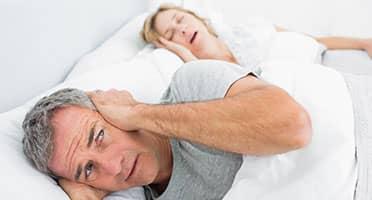
Sleep apnea is a sleep-disordered breathing condition characterized by pauses in breathing while you sleep. These pauses last anywhere from several seconds to much longer, depending on the severity of your condition, and can happen hundreds of times per night. Sleep apnea leaves you unrested and irritable with headaches, memory problems, and more. If you’re experiencing sleep apnea symptoms, get a home sleep test from SleepTest.com to find out if you have sleep apnea, what type you have, its severity, and your treatment options.
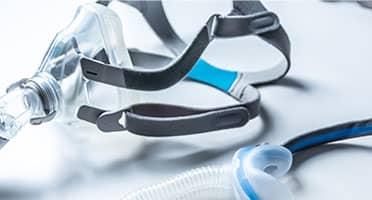
For many, fears about sleep apnea treatment are scarier than the possibility of having sleep apnea. It may seem attractive and easy to blissfully ignore the likelihood of sleep apnea, even when experiencing daytime sleepiness, morning headaches, and cognitive decline. But it’s crucial to get a sleep study if you suspect you may have sleep apnea.

Traditional sleep apnea testing is done in a lab over one night. It’s called in-lab polysomnography. You go to a sleep testing lab for one night, and sensors and a tech monitor your sleep for the night. The data is then given to a sleep doctor who would diagnose you or not. However, the problem is that sleep apnea episodes fluctuate nightly, making the severity of your sleep apnea hard to diagnose in just one night of monitoring. Not only that, but sleep testing labs can be uncomfortable, like sleeping in a hotel. You may or may not sleep as you normally would at home.
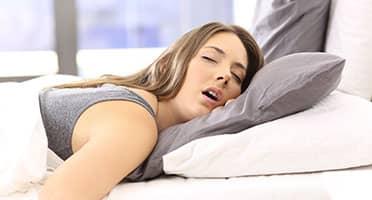
One thing many people fear when they worry about sleep apnea is sleep apnea surgery. Rightly so, undergoing surgery for anything is a bit scary. However, sleep apnea surgery isn’t usually necessary because other, less invasive treatments work better.

Sleep apnea is 80% undiagnosed and untreated, but it’s familiar enough that many people are aware of it. You may even know someone receiving treatment, or maybe you are experiencing symptoms of sleep apnea and are wondering if you should get tested. Sometimes, we think of sleep apnea as simply not getting enough sleep. While this is true, it’s more complicated than that. Untreated sleep apnea leads to health consequences throughout your entire body. One such consequence is dementia. If you have sleep apnea, treating it can lower your dementia risk.

Do you wear a smartwatch to bed? If you do, you know that it tracks your sleep. It provides data on how long you slept, how long you spent in each stage of sleep, and how many times you woke up throughout the night. More sophisticated watches estimate blood oxygen saturation, snoring, sleeping heart rate, and restlessness. You’d think you could diagnose your own sleep disorder with all that information, but a doctor still needs to provide a diagnosis. Here’s why.

Your body performs many complicated processes to keep you alive and healthy throughout the day and night. Each system has a different purpose that has evolved over thousands of years to ensure the survival of our species. One such process is sleeping. The more we find out about it, the more we realize that it’s not just our brains that need sleep. It’s our entire body. And even when we think we’re sleeping fine, we may inadvertently be triggering a body response that prevents us from getting the restful sleep we need to be truly healthy. In a 2022 study, researchers found that sleeping with even a tiny amount of light can have health consequences.
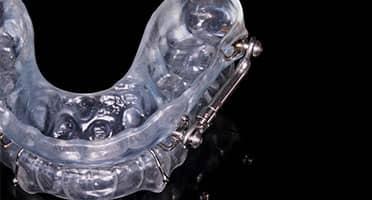
With three different types of sleep apnea and multiple treatment options, you can feel overwhelmed and like your situation is hopeless. Not only that, but you’re suffering detrimental sleep apnea symptoms, making your personal, professional, and social life seem like a chore. Choosing the right treatment for sleep apnea shouldn’t be so hard.
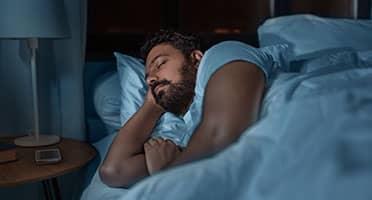
Many people suffer from sleep deprivation. In fact, as many as 50 – 70 million Americans suffer from a sleep disorder that significantly impacts their lives. One such disorder is sleep apnea. Sleep apnea is when you experience interruptions in breathing throughout the night. These interruptions can last 8 seconds or longer, depending on the severity of the disorder. They can happen hundreds of times per night, preventing your body from getting the oxygen and sleep it needs to function in the following days.

Sleep apnea is a sleep disorder that plagues millions of people worldwide, with many cases going undiagnosed and untreated. When you have sleep apnea, you experience pauses in breathing while you sleep. These pauses can last anywhere from 10 seconds, a minute, or even longer before your brain panics and awakens you so you can resume breathing. You may not always notice these awakenings, but they can happen hundreds of times during the night for those who suffer from sleep apnea. Your lack of sleep and interruptions in your sleep cycle results in consequences like daytime sleepiness, morning headaches, and snoring. While you think you may be able to deal with those, there are other, more dangerous effects of untreated sleep apnea, too, like increased risk of stroke, diabetes, and heart disease.
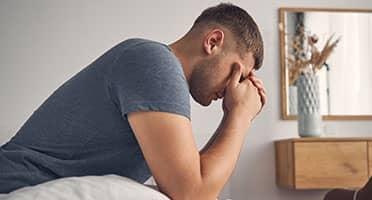
Between balancing work, family life, and your social life, it can be hard to find time to go to the doctor to address your sleep apnea. And yet, when you aren’t sleeping well, it can be even harder to balance all those different aspects of life. When we sleep, our brain and body work on restoring themselves so we’re ready for the next day. And if that can’t happen, how can we expect ourselves to manage that balancing act?

Do you think you might have sleep apnea? A great way to diagnose this condition is with a home sleep study. Don’t worry–you can have a sleep test sent directly to you and take it in the comfort of your own bed. Then, if your results indicate that it’s appropriate, we can connect you with a local dentist from our network that can fit you with a custom oral appliance for easy treatment.
For many dentists and doctors, the biggest obstacle to treating their patients’ obstructive sleep apnea is getting a sleep test. Patients must visit a separate office for a consultation before getting a sleep test. A sleep physician may also recommend a test at a sleep lab, which may be unnecessary and can lead patients to put off getting a test.





